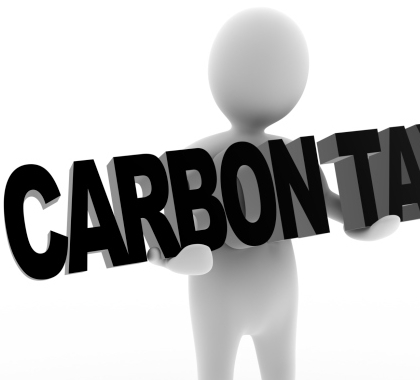Following through on his campaign pledge to set Illinois on a path to 100 percent “clean, renewable energy,” newly elected Gov. J. B. Pritzker signed an executive order committing his state to join 17 others in the United States Climate Alliance (USCA).
Nation Leaves Paris, States Join
The forming of the USCA was a reaction to President Donald Trump’s announcement the United States would withdraw from the December 2015 Paris climate agreement because the restrictions would hurt America’s economy without improving the environment.
“The Paris accord will undermine [the U.S.] economy … [and] puts [the United States] at a permanent disadvantage,” said Trump at a press event announcing his decision, held in the White House Rose Garden on June 1, 2017.
USCA members pledge to implement policies advancing the goals of the Paris climate agreement, in part by reducing greenhouse gas emissions by at least 26 to 28 percent below 2005 levels by 2025. USCA members are also required to “[a]ccelerate new and existing policies to reduce carbon [dioxide emissions] and promote clean energy deployment at the state and federal level.”
“We know that climate change is real … and we know we must act,” Pritzker, a Democat, said at a news conference announcing his decision to have Illinois join USCA. “We’re already experiencing the damaging effects of climate change, and the challenges we face require immediate action, and that’s what we’re doing today.”
Two other recently elected Midwestern Democrat governors, Michigan’s Gretchen Whitmer and Wisconsin’s Tony Evers, have also put their states in the USCA since the 2018 election.
Higher Costs, Less Competitive
Pritzker’s decision to join USCA will hurt Illinois residents, businesses, and farmers, says James Taylor, a senior fellow at The Heartland Institute, which publishes Environmental & Climate News.
“Electricity costs are a significant item in monthly household budgets, plus energy is a key component in the price of producing and purchasing every product sold in our economy,” Taylor said. “Further restricting affordable energy and Illinois carbon dioxide emissions would make Illinois even more economically uncompetitive with other states.
“Just as importantly, a warming climate has provided tremendous benefits to Illinois farmers and the Illinois economy,” said Taylor. “Illinois farmers set new records for crop yields nearly every year as growing seasons have lengthened, frost events occur less frequently, and precipitation is more abundant.”
‘Expensive Green Folly’
Restricting carbon dioxide emissions in Illinois will not affect climate change, so Pritzker’s decision to join USCA is nothing more than environmental posturing, Taylor says.
“J. B. Pritzker may curry favor with the radical environmental Left by imposing new restrictions on Illinois energy and carbon dioxide emissions, but he is selling out Illinois businesses, consumers, and farmers by doing so,” Taylor said. “Illinois’ economy has no measurable impact on global carbon dioxide emissions or temperatures.
“Raising the cost of living Illinois families face by forcing a reduction of carbon dioxide emissions, a goal that will have no measurable impact on global temperature, is expensive green folly,” said Taylor. “Pritzker is showboating at the expense of the hardworking people of Illinois.”
Sacrifices ‘for Naught’
The actions taken by Illinois and other states in the USCA will have a negligible effect on global carbon dioxide levels, says Tom Harris, executive director at the International Climate Science Coalition.
“Gov. Pritzker seems to not know that the actions of Illinois, or even the whole country, will have virtually no impact on global climate, no matter what some scientists claim,” said Harris. “This is because China, now the world’s largest carbon dioxide emitter, and other developing nations with steeply growing emissions, have an opt-out clause in the U.N. Framework Convention on Climate Change (UNFCCC), the document upon which the Paris Climate Agreement is based.
“The UNFCCC allows developing nations, such as China and India, to not participate in the Paris accords, with Article 4 in the UNFCCC stating, ‘Economic and social development and poverty eradication are the first and overriding priorities of the developing country Parties,'” Harris said. “This stipulation, really an exemption from carbon dioxide emission restrictions, does not apply to developed nations like the United States.”
As a result, Harris says, Illinoisans’ sacrifices will be in vain.
“The last thing China will do is get rid of coal, their primary source for electric power, even though coal combustion is a major source of carbon dioxide emissions,” said Harris. “The soaring electricity prices Illinoisans will soon pay because of Pritzker’s climate agenda will be for naught.”
Darkness on the Horizon
Pritzker’s decision to force a drastic reduction of Illinois’ carbon dioxide emissions will require restricting fossil fuel use, which, because of the state’s climate, will leave people without electricity seasonally, says David Wojick, a senior policy analyst with the Committee for a Constructive Tomorrow.
“Illinois is setting itself up for blackouts and brownouts,” said Wojick. “The governor’s plan completely ignores the fact the state’s climate features hot summers and extremely cold winters.
“That is when demand for power is at its peak, and is when intermittent wind and solar power fail to produce an adequate amount of electricity, showing the absolute superiority of fossil fuels to generate reliable power,” Wojick said. “As is the case with New York’s recently unveiled state Green New Deal, the plan ignores the enormous cost of backup battery storage required to fill the gap. Both plans are recipes for disaster.”
Chris Talgo ([email protected]) is an editor at The Heartland Institute.





